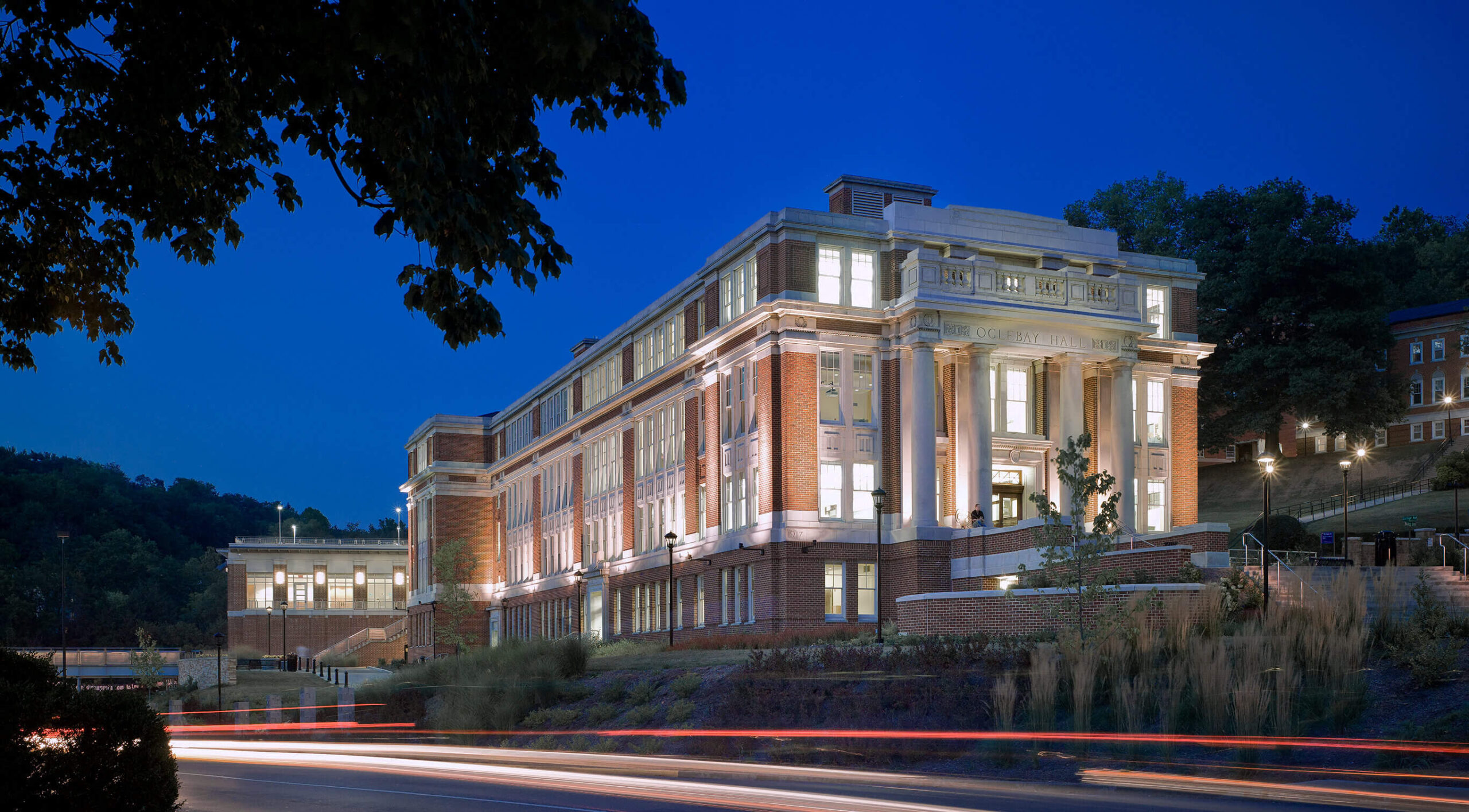Sara Guthrie
Rank: PhD student
Major:
Sociology
Hometown: Williamsport, Pennsylvania
What motivated you to go to graduate school?
I’m a first-generation college student, so I had no idea what I was getting myself
into with graduate school. I knew pretty early on that I wanted to help mentor
students like me – first-generation students, queer students, students I didn’t
often see reflected in people who were teaching my courses. I didn’t have a lot
of that mentorship, but I knew that’s what I wanted to do with my career. I knew
the only real way to do that was to continue my education and go to grad school.
While I was studying for my master’s degree at the University of Massachusetts Boston,
I realized quickly there was a lack of research in rural areas. Everyone was talking
about how important it was to study all these people living in urban areas. But
that wasn’t my experience. I’m from rural Pennsylvania. It’s different. You can’t
just assume that everyone is going to follow the same ideas and patterns that people
in urban communities do. When I was at UMass Boston, I realized I needed to go
to a university that would allow me to focus on rural populations. I also really
liked that WVU is a land-grant and a public university, and there is this idea
of giving back to underserved communities. That’s why I thought WVU would be a
good fit.
What is the focus of your research?
My research goals are very connected to Amish communities now, but they weren’t always.
A lot of my research is focused on political mobilization. I started with an interest
in why and how people in rural communities are able to be politically mobilized
specifically around environmental issues. Then the pandemic hit, and I was concerned
I wouldn’t be able to get into or access these communities in the same way. I was
already working as a graduate research assistant in the Department of Sociology
and Anthropology on a
project about Amish communities, and we happened to start seeing some similar
political issues arise in our data. I immediately thought that the Amish are not
supposed to be politically mobilized. They aren’t supposed to be politically active.
Yet, it is happening. How does a closed community become politically mobilized?
That’s really where my research has shifted. The political mobilization has been
the thing that ties everything together.
One of the things I’ve enjoyed the most is the mentorship. My advisers,
Rachel Stein and
Katie Corcoran, have been incredible mentors not just in research but in general.
I’ve worked with Dr. Stein a lot on teaching and how to become a better instructor.
It’s been helpful to build those relationships with people I look up to and who
are great researchers, teachers and mentors. Modeling strong mentorship is really
helpful, and I hope I can someday provide that same mentorship to students. Having
that connection has been my favorite part of graduate school.
What challenges have you faced since the start of the pandemic?
Everything about my research felt focused and ready to move forward. Then the pandemic
began. I couldn’t wait around to figure out when I could enter the communities
and do interviews and research them the way I needed to, and that changed my entire
research path. That’s probably for the better, but it was a big shift.
What resources have helped you navigate and overcome those challenges?
I’m lucky because I’m a fourth-year student. I already have a community and connections
that I’ve built the last four years. I have a strong connection with my cohort.
I have a strong connection with the cohorts above and below me. It’s really easy
to stay in communication.
The pandemic has greatly affected the younger students just starting their graduate
work. They haven’t had that same chance to build community on campus. We try to
reach out to them, but there’s something about being in the same hallway and knocking
on an older student’s door to grab a cup of coffee and just talk. The hardest adjustment
has been missing out on the chance to sit and chat face to face. It’s something
everyone is missing.
To help maintain some of that connection, I’ve been coordinating Zoom trivia nights
and happy hours. Even though we can’t all be together, we can still have camaraderie.
Just trying to set those up has made life feel a little more normal.
What advice would you share with other students who may be facing similar challenges?
Personally, I’ve heavily leaned on the Carruth Center. I encourage everyone I interact
with to do that. It is good to talk about these things because grad school is stressful
enough. Grad school during a pandemic – no one is prepared for that type of stress.
What have you learned about yourself since the pandemic began?
I’ve learned to not take myself too seriously and stay flexible and open to opportunities.
I think about how something may change, but that’s OK because you can still make
sure you are on the path you need to be on to get to your end goal.
How have you found resilience during these difficult times? What have been your keys to getting by?
I have spent an absurd amount of time outside hiking with my dog, Rudy!



